- Expert advice/
- Fashion & beauty/
- Wedding Hair & makeup/
- Should You Get Hair Extensions for Your Wedding?
- Wedding Hair & makeup
Should You Get Hair Extensions for Your Wedding?
Wondering if you should get hair extensions for your wedding? Read on for our guide that will help you decide.
Last updated February 5, 2024
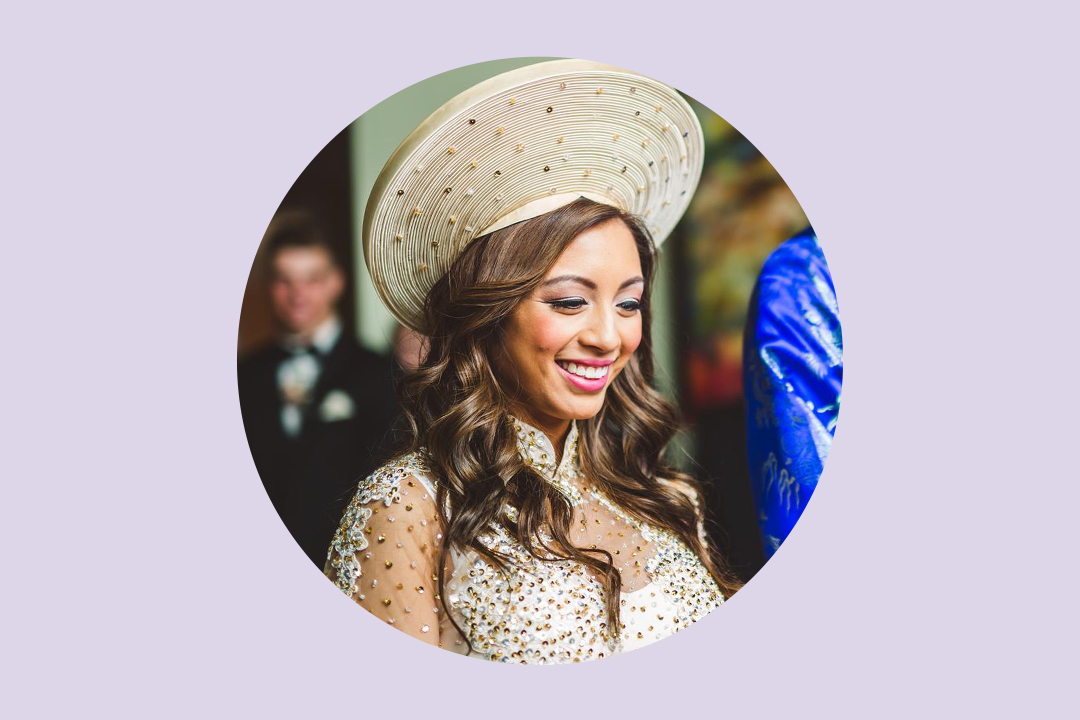
The First Look ✨
- There are many types of hair extensions to consider before deciding to wear them on your wedding day, including clip-ins, halo, updo, and permanent hair extensions.
- The cost can vary to lengthen your hair or add more volume, depending upon the type of hair extensions you prefer and whether or not you hire a stylist to install them.
- Hair extensions can work on a variety of hair types, but if your hair is thinning, you may have to find other options.
- Find inspiration for hair extensions from social media or your own photo album.
Figuring out what to do with your hair for your wedding can be stressful. One option is using hair extensions to give you the length and volume you’ve been dreaming of. Adding in extensions can help you achieve more dramatic updos, longer hairstyles, thicker braided styles, or even generally fuller looks.
Whether you’ve experienced stress-related hair loss due to wedding planning or the pandemic, there should be no shame in your game if you want to add more hair to feel more confident. Between clip-ins and more permanent hair extensions, despite your hair texture, there’s an option, and Zola is here to help you determine which one will work best for you.
Table of contents:
Part 1: Types of Hair Extensions: Everything You Need to Know
Part 2: The Cost of Hair Extensions
Part 3: Best Options for Hair Textures
Part 4: Hair Extensions Inspiration
Should a Bride Get Hair Extensions for the Wedding?
You’ve probably seen wedding hair extensions on social media for added length or volume. But should you try it for your own wedding? Extensions can offer a quicker way to get the style you want versus waiting for hair to grow out.
The biggest thing to consider when making the decision to get hair extensions is what will make you feel most confident on your wedding day. “There are different types of both permanent and temporary extensions. One needs to consider the desired style outcome versus the current amount, length, and type of hair on her head pre-extensions,” says Megan Garmers, founder and director of MG Hair and Makeup.
But if there’s a certain look you’re trying to achieve, hair extensions can help. “I would recommend a bride get hair extensions if they're looking to make their hair appear fuller and longer, or achieve a certain style they couldn't otherwise with their natural hair,” says Eden Fabbo, hairstylist and makeup artist at Love Lane Salon + Love Lane Brides.
Part 1: Popular Types of Hair Extensions: Everything You Need to Know

For many brides, picking a hairstyle for the wedding is just one of many stressful decisions to make during planning. There’s no shortage of options when it comes to styles and even wedding hair extensions. But the good news: Zola has your back. Here’s a breakdown of the types of hair extensions to consider:
Clip-in Hair Extensions
Clip-in hair extensions are pieces of hair with small clips that you can fasten to your own hair. The best part is you can customize your look, because there are various sizes and colors to choose from. “Finding the perfect match for your hair can be daunting. Some people end up coloring their hair to match the extensions to make that step easier,” says Ghanima Abdullah, cosmetologist and hair expert at The Right Hairstyles.
Pros
- Clip-ins are easy to apply to your own hair. They come with a clip already sewn into the bridal hair extension, so all you have to do is snap them in. “Clip-in extensions are easy to install and remove, and can be used when you just need a slightly thicker look,” says Abdullah.
- “They're always more affordable than sew-ins and less of a commitment,” says Fabbo. She also says this is the best option for adding to the bride’s hair on the wedding day.
- Each clip-in hair extension kit contains up to 12 clips in different widths, so they can be clipped where you need the volume and length.
Cons
- With any style, hair breakage is possible. If you have thin hair, clips may not be the best option for you since they can cause hair breakage and split ends if removed incorrectly.
- Clip-ins aren’t that secure. “If not installed correctly, they can slip out or be pulled out,” says Garmers.
- “If your hair is shorter than the extensions, be prepared for an extension haircut. They have to be “cut in,” so they blend in with your real hair. That might mean some carving into your natural tresses, too. Think about how that will look after the extensions are removed,” says Abdullah.
Halo Extensions
Halo hair extensions are another option. They come in a half-circle shape with a clear nylon string to hide them. To apply, tie your hair up into a half knot, leaving some hair in the front, then place the cord around the top of your head, so the extra hair sits in the back of your head, then fasten the clips to your own hair and brush your hair down to hide the cord. “These are the perfect choice if you want long waves or loose curls for your wedding and just want to jazz it up a bit with added length and volume,” says Abdullah.
Pros
- These are good for those with long hair. “They are designed for those who have long hair that’s already several inches past the shoulder, so these extensions don’t need to be cut in,” Abdullah explains.
- “There’s a wide variety of color choices, so they can be styled like regular hair, and they fit in seamlessly,” says Abdullah.
- Halo extensions are easy to install. Since it’s just one piece, you don’t need any applications or clips.
Cons
You can’t do updos—including ponytails and buns—with halo extensions. If you’re hoping for an updo, this isn’t the option for you. “The halo extension can slip out or fall off,” says Garmers.
Updo Extensions
From clip-in ponytails to buns for brides-to-be dreaming of a bold updo, these extensions can help you reach your hair goals for your wedding. Place the comb at the top of your own ponytail and wrap the extra piece of hair around your elastic for a polished glam updo. “If you want a romantic updo for your big day, but you don’t have enough hair for the look you want, consider updo extensions,” says Abdullah.
Pros
- Cost-effective is the name of the game with these extensions. “Extensions for up-dos will typically be cheaper than other styles. This is because you only have to place them where they'll be seen, and most up-dos won't require as much hair,” says Fabbo.
- Simple to use. “It’s the easiest way to get a messy bun or updo. Even if you have sufficient hair for an updo, updo extensions are made like scrunchies. They allow you to experiment easily, so you can get the style that’s just right for you,” explains Abdullah.
Cons
- Hair can be too heavy. “These can be heavy to carry around all day and night,” says Garmers.
- Garmers says the extensions need to be installed specifically for the style you want, otherwise your guests might be able to see the seams and clips. “Like with all hair extensions, a perfect match in color and texture can be an issue. And with updo extensions, there aren’t nearly as many texture and color options as with clip-ins. Exact matches can be a little difficult,” says Abdullah.
Permanent Hair Extensions
If you’ve been wanting longer locks, your wedding is the perfect time to try out permanent hair extensions. These can be sewn, glued, or taped to your hair and last anywhere from a month to six months.
Pros
- “Sew-ins, taped, glued, K-Tips (keratin tips), and I-Tips (micro-bead) all have different pros and cons based on your hair type and the overall look, cost, and length of time you want to keep them in for,” says Garmers. If you want to get more bang for your buck, think about wearing the permanent extensions for all of your wedding-related festivities, and even the honeymoon. Garmers also says K-Tips and I-Tips are the best choice if you want to wear the extensions for up to 10 months.
- “If your hair is short and you want to break all the rules, have a look at sew-in extensions. These can give all lengths of hair amazing volume and length,” says Abdullah. However, for any hair length, Fabbo says permanent extensions stay the best in very curly or coarse hair.
Cons
- “Permanent hair extensions are most likely to damage your hair or cause breakage or hair loss, as the application and weight of the extensions may put too much stress on your hair,” says Garmers.
- “Sew-ins need considerable maintenance when it comes to cleansing and caring for your hair underneath,” says Abdullah.
Part 2: The Cost of Hair Extensions

Your wedding hairdo should already be factored into your budget, but if you’re considering hair extensions, you might need to adjust that number. The price of hair extensions varies based on your choice of synthetic or human hair.
Human Hair Extensions vs. Synthetic Hair Extensions
Experts say it’s best to stick with human hair, not synthetic, for your big day. Remy hair is the highest quality and the best option to ensure it looks natural. While synthetic extensions may be tempting for the low cost, sacrificing quality may not be what’s best for styling purposes.
Often, human hair is more costly, but it can withstand heat and is more amenable to styling. This is because human hair has various lengths and thicknesses you can choose from, in addition to color. Remy extensions come from the same donor and the cuticles are kept intact, so that the hair flows naturally in one direction and doesn’t get tangled.
Plus, you can cut and color human hair. “Human hair is generally best, because you can use hot tools (curling irons, etc.) on it to curl it or style it like your regular hair. It also blends well, because it is human hair like the hair on your head,” says Garmers. Human hair also acts just like the hair on your head.
“It’s usually pre-color treated, so a second color treatment might ruin it. The humidity will affect it, so if you get caught out in the rain, and your own hair has been modified to match the weave, you might end up with two textures of hair,” says Abdullah.
Synthetic hair extensions are created from artificial fibers and have a shiny unnatural finish. “There are specific types of synthetic hair that can be heat treated, but just remember when mixing it with your own hair, it will photograph differently if a flash or other bright light is used, because it reflects light differently than human hair,” says Garmers. “Stay away from synthetic hair unless you're going with box braids or camouflaging them entirely by using them as stuffing,” says Fabbo.
Here’s a breakdown of how much money your new style could cost:
- Clip-in Extensions: These are much more affordable than permanent ones. “You can grab a pack of clip-in extensions or synthetic ones at a beauty supply store for under $100, or you can have permanent ones installed at a salon for over $1,000,” says Garmers.
- Halo Hair Extensions: The price of these extensions depends on multiple factors, including hair length and type. The price ranges from less than $50 to $200 and up.
- Updo Extensions: Ponytail extensions made from synthetic hair can range from $40 to $55.
- Permanent Extensions: Since these last longer, they will cost a bit more. “At a salon, hair extensions usually cost between $200 and $600. But be aware, if you go with a full head of very long extensions, it can set you back as much as $3,000,” says Abdullah.
The longer the hair, the higher the price tag. Remember, it’s best to consult a stylist to see what type of hair would work best to keep your hair healthy. Before committing to any kind of extensions, work together to come up with a plan that will have your hair looking wedding day ready and keep your budget intact.
Part 3: Best Options for Hair Textures

There is an extension option for everyone, no matter the length, texture, or condition of your hair. “Best options are generally not by hair texture but by the desired style and length of time you want to keep the extensions in for,” says Garmers. However, if your hair is fragile or thin, it’s best to consult with a stylist about finding an option that won’t cause any damage.
Straight Hair
Any type of extension works for straight hair, except sew-ins. “Sew-ins were created for thick, textured hair. Sew-ins tend to cover all of the natural hair, and in that way, are like a good wig. The difference is that they require more maintenance, although you can sleep in them,” says Abdullah. But she says if you have a relaxer in your hair, it behaves differently than naturally straight hair. “The hair in the extensions can easily be differentiated from relaxed hair just a day or two after the install, which can make it look poorly done.”
Textured Hair
Abdullah says sew-ins work well with textured hair, because they blend well. Fabbos says permanent extensions are best in very coarse hair.
Curly or Kinky Natural Hair: Tame those curls with a sew-in. “Sew-ins are better for super curly hair textures. “If you have natural kinky/curly hair, using permanent extensions is usually not the best idea, because your natural hair will get curly and the extensions would most likely be straight,” says Garmers.
Part 4: Hair Extension Inspiration for Weddings

To narrow down exactly what look will work best for your hair and face for your wedding hairdo, it’s important to find some inspiration to help you with your decision.
- Social Media: Look on social media sites like Instagram, but do a specific search for the type of hairstyle you’re looking to achieve. There are lots of hair extension companies online, check out the photos of the hair—and see if there are real brides rocking those styles. Be sure to read the reviews before you purchase hair online.
- Online: Pinterest is a popular site to look for inspiration. Just search various hashtags to find your wedding inspo.
- Your Photo Album: Pull out your own photo albums and check out your friends and family to see if there’s a style that inspires you that you can put your own spin on. You may even discover a style you had for an event that you’d love to recreate with longer, fuller tresses.
Pro Tip: Use certain descriptive words when scouring the internet for inspiration like curly, braids, halo, beach waves, updos, casual, and natural, to name a few.
Zola: Helping You Extend Your Wedding Hair to Its Fullest Potential
Remember: Your hair is your crown and however you decide to adorn it is totally up to you. Whether you add to your hair with clip-ins, a sew-in, updo, or halo hair extensions, or if you decide to stay natural, it’s your day. Ultimately, you decide what makes you feel beautiful and confident. Zola is here to help you every step of the way from finding the right look and how to achieve it, so that you look your absolute best on your wedding day.
Up next for you
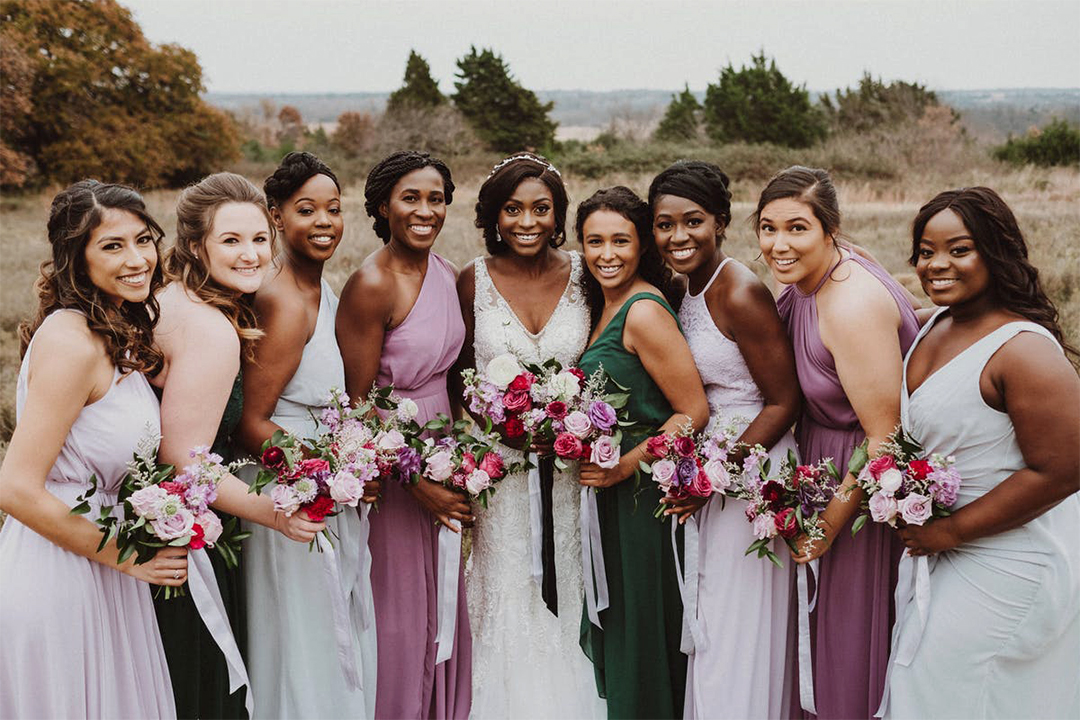
Finding a Versatile Hairstylist for Your Wedding
How To
Finding a hairstylist for your wedding day can be stressful, but it doesn’t have to be. Here's our to help you navigate finding the perfect hairstylist for your wedding.
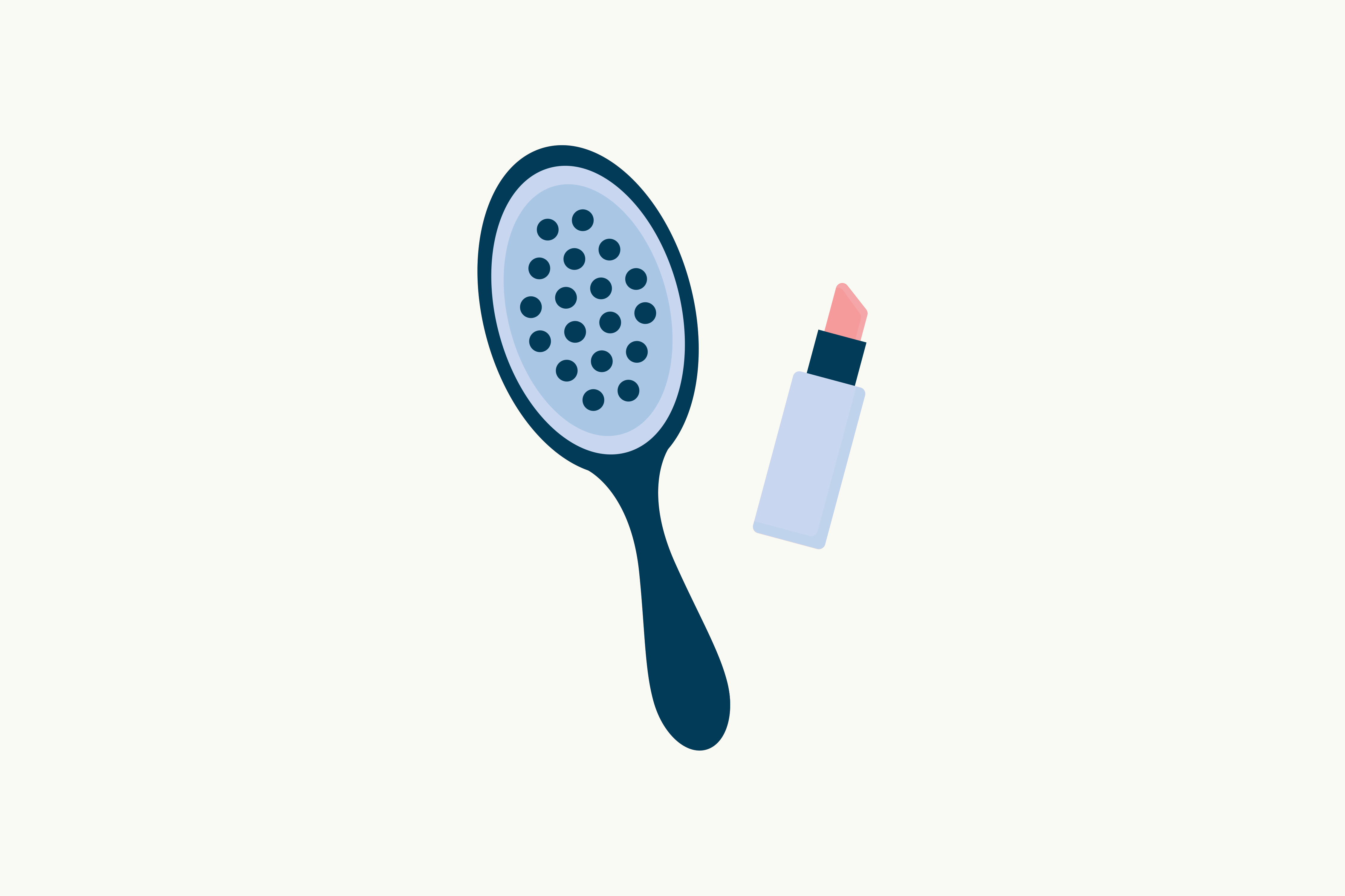
Wedding Hair Stylists and Makeup Artist Dos and Don'ts
Advice
Makeup artists and hairstylists have a huge role in making the bride feel beautiful. Continue reading for insider wedding tips from these beauty professionals.
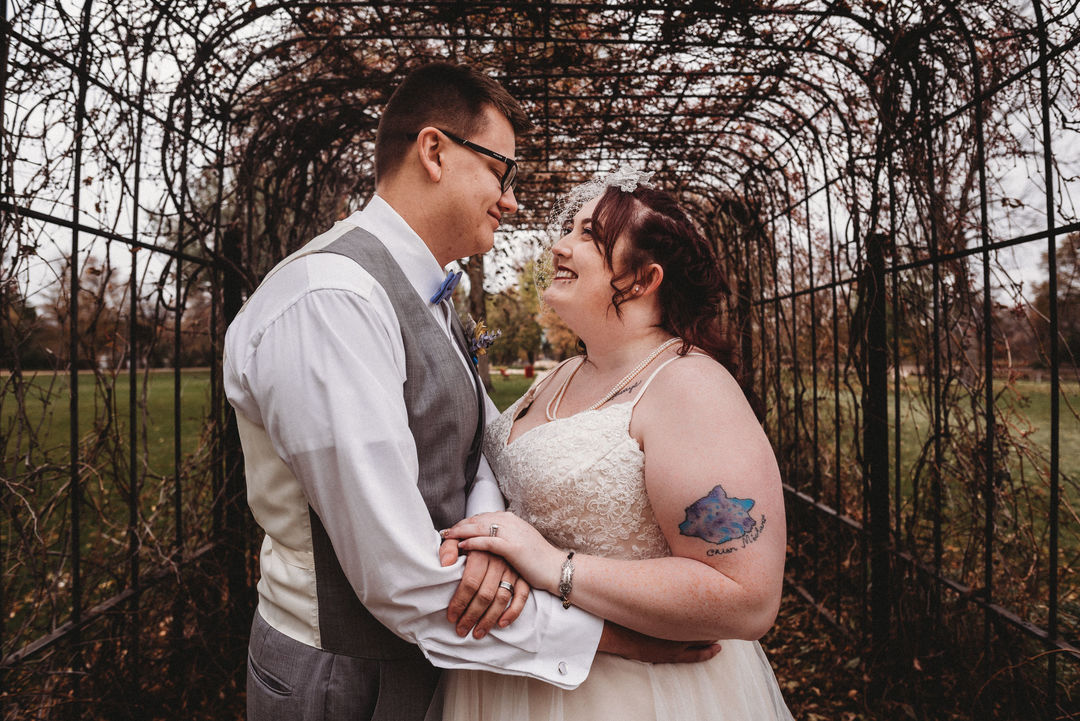
How to Embrace Acne On Your Wedding Day
How-To
Feel comfortable in your skin—blemishes and all—on your wedding day. Expert tips for embracing your acne on your wedding day and taking care of your skin.
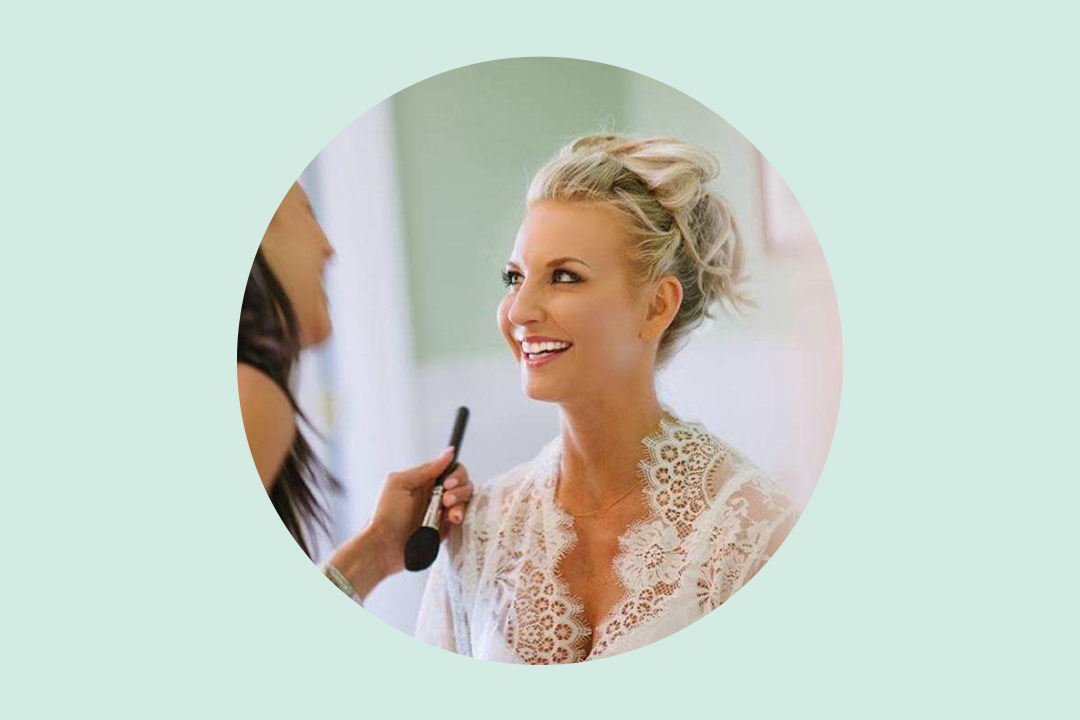
9 Tips for Great Bridal Makeup From a Makeup Artist
Wedding Makeup
Here are a makeup artist's best tips for amazing bridal makeup. Charlottesville makeup artists, Anne Kibler of Charlottesville Makeup Artist LLC, is here to save the day.
Featured
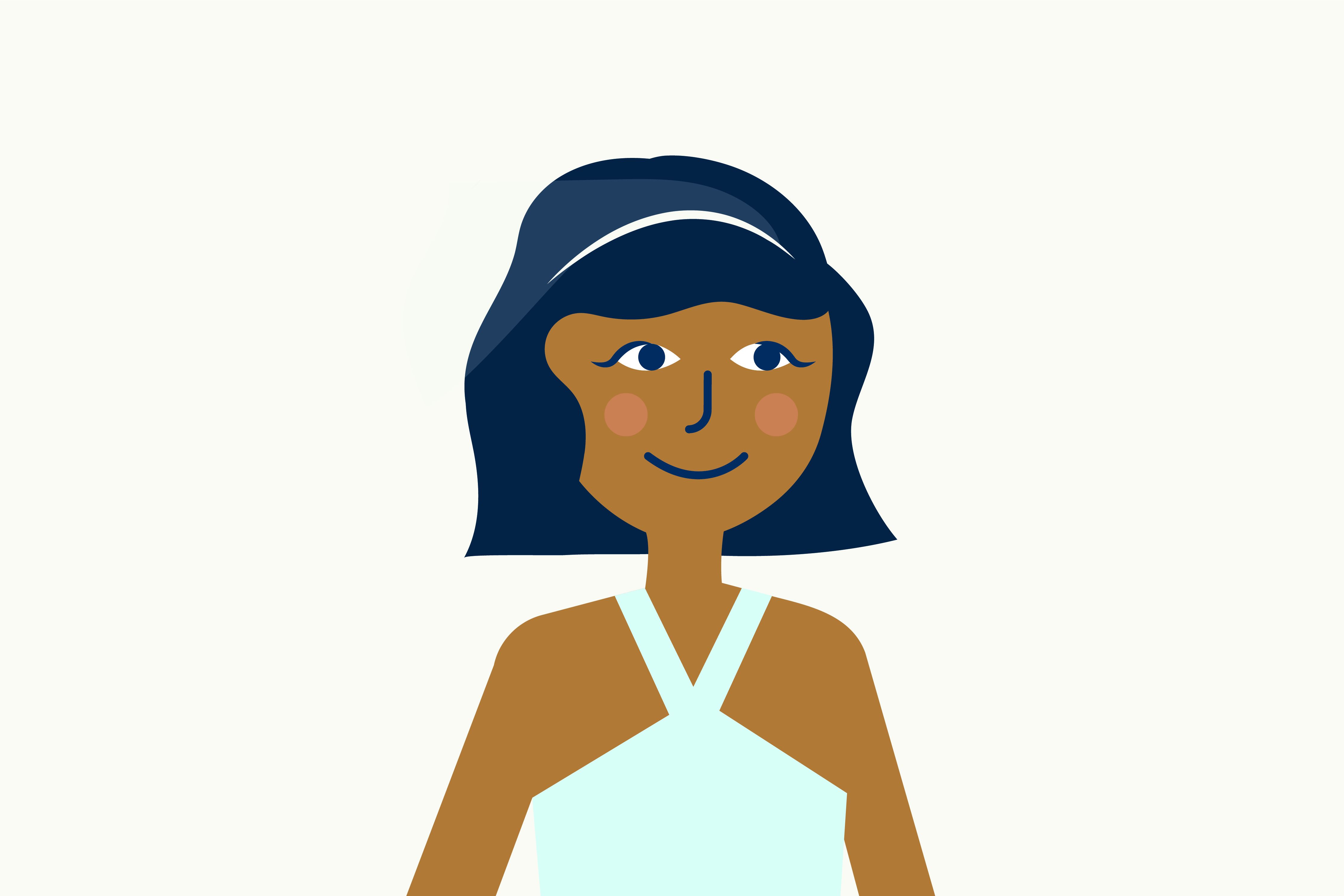
Should You Get Lash Extensions Before Your Wedding?
Advice
If you’re considering getting eyelash extensions for your wedding, read this first.

Should You Use Airbrush Makeup on Your Wedding Day?
Advice
Airbrush makeup has become a popular choice for brides everywhere. We dive into the benefits of airbrush makeup, here.

9 Tips for Great Bridal Makeup From a Makeup Artist
Wedding Makeup
Here are a makeup artist's best tips for amazing bridal makeup. Charlottesville makeup artists, Anne Kibler of Charlottesville Makeup Artist LLC, is here to save the day.
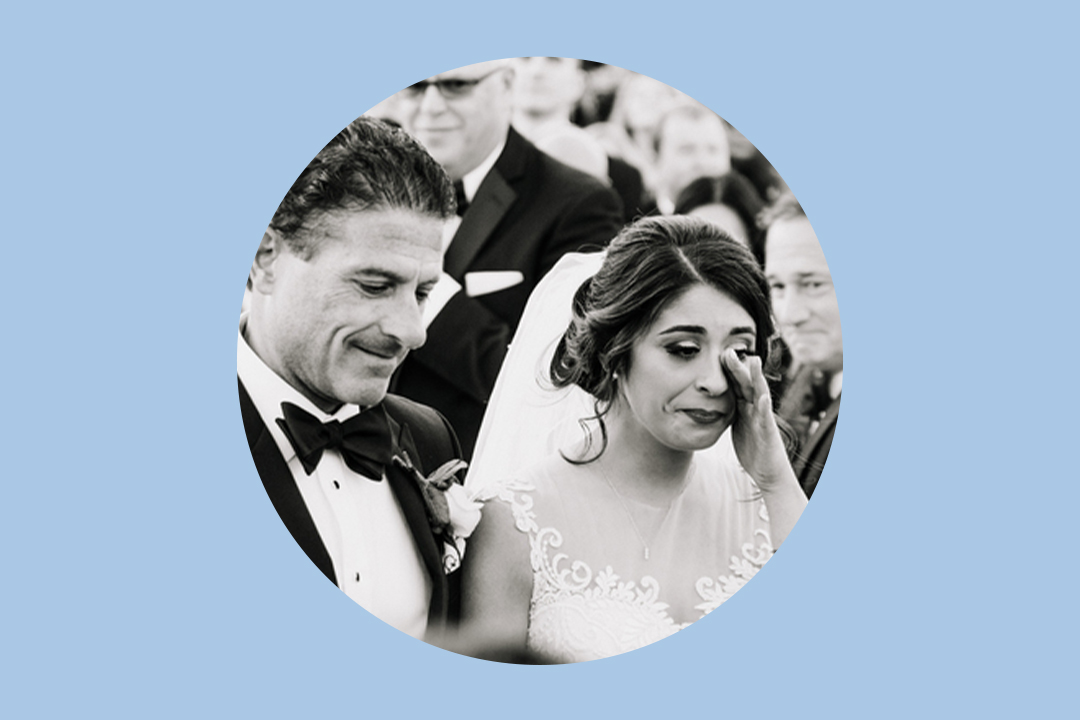
How to Ugly Cry and Keep Your Makeup Intact
How To
If you're prone to heavy tears, your makeup might take a hit on your wedding day. Professional makeup artists share how to fix your makeup after crying.
- Expert advice/
- Fashion & beauty/
- Wedding Hair & makeup/
- Should You Get Hair Extensions for Your Wedding?
Find even more wedding ideas, inspo, tips, and tricks
We’ve got wedding planning advice on everything from save the dates to wedding cakes.
